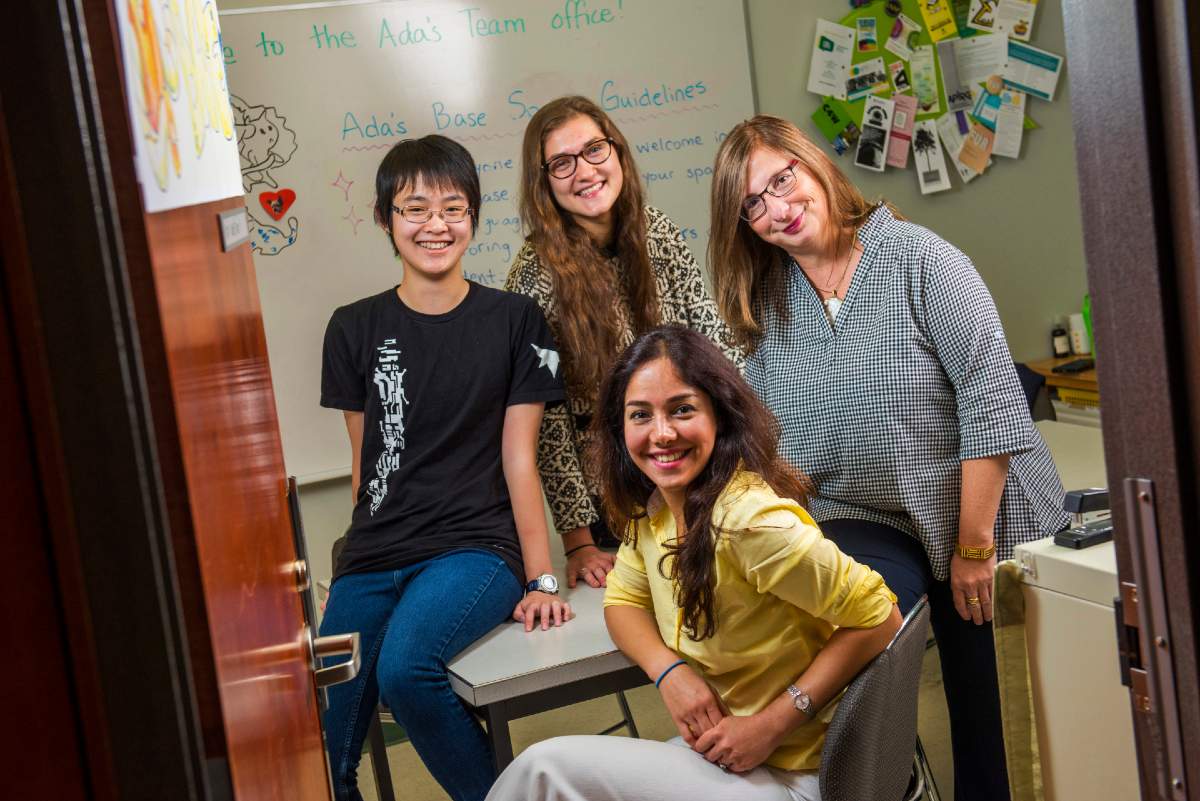
Ada's Team, a grassroots student group at the University of Alberta supporting diversity in computing science. A $1.25M donation from Scotiabank is supporting artificial intelligence and diversity initiatives. Photo credit: John Ulan
Thinking just got a little richer at the University of Alberta, thanks to a generous donation from the bank that made famous the movement, "You're richer than you think."
Following on their growing support for artificial intelligence research at Canadian post-secondary institutions, Scotiabank today announced a $1.25M philanthropic donation to fund the Scotiabank Artificial Intelligence Research Initiative in the University of Alberta's Department of Computing Science.
The donation is another strong signal of the financial industry's focus on emerging and next generation services and support, a sign of the times that AI's impact on society continues to snowball.
"Leveraging academic partnerships with leading research in the field of artificial intelligence will
continue to provide a unique pipeline for idea generation and innovation to support the build of future solutions for Scotiabank customers," says Mark Wagner, Vice President Analytics Practice and Corporate Functions at Scotiabank. "Our partnerships with academia are fostering the next generation of talent by building communities of practice for artificial intelligence and machine learning."
Distributed across five years, the donation will enhance artificial intelligence research to understand and build practical tools and predictive models for fraud detection and speech to text in analytics. The investment also supports the growth and development of women in science, technology, engineering, and mathematics (STEM), such as those led by the grassroots student group Ada's Team.
Addressing inclusivity in artificial intelligence
"We need to be intentional about working together to build a balanced, diverse, and inclusive science pipeline more reflective of today's world." - Matina Kalcounis-Rueppell, Dean of the Faculty of Science
Founded in 2013 and named after Ada Lovelace-the world's first computer programmer-Ada's team supports diversity in computing science at the University of Alberta. The student-led group provides free tutoring to underrepresented students, offers community outreach to encourage prospective students to see themselves in computing science, and leads tutorials, networking events, and hackathons, among other initiatives, all with an eye to an equitable, diverse, and inclusive future for training and the profession.
"We are grateful to Scotiabank for their support of our artificial intelligence initiatives at the University of Alberta," said Matina Kalcounis-Rueppell, Dean of the Faculty of Science at the University of Alberta. "We need to be intentional about working together to build a balanced, diverse, and inclusive science pipeline more reflective of today's world. This donation not only supports our students but also provides important training for postdoctoral fellows, increasing our research capacity in AI and positioning our leaders of tomorrow to address global challenges and societal needs."
Beyond support for student groups, Scotiabank's donation will support research through a postdoctoral fellowship, supervised by Eleni Stroulia and Denilson Barbosa, professors in the Department of Computing Science. Stroulia's research addresses problems motivated by industrial and community needs with software systems designed to support the activities of the people involved and improve their efficiency and quality of their output. Barbosa's research focus includes web data management, information retrieval, and natural language processing, all with an eye to machine learning methods applied to these fields.
One of Canada's top five universities, the University of Alberta punches well above its weight for artificial intelligence research, ranking third globally over the last 25 years, according to CSRankings.org. The University of Alberta's Department of Computing Science is the oldest and one of the largest computing science departments in the country, with an international reputation for contributions in the many fields of computing, both in foundations and applications.